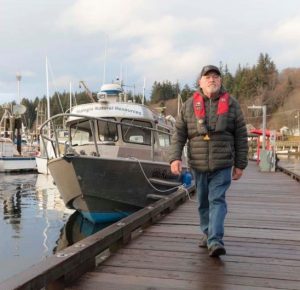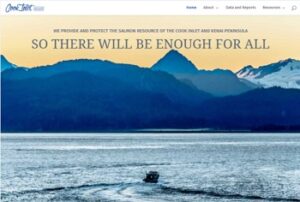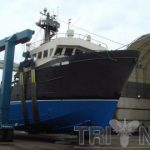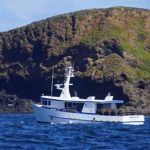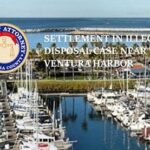Tag Archives: PFD’s
‘There’s no lobster worth a life’: P.E.I. fishers reminded lifejackets are mandatory
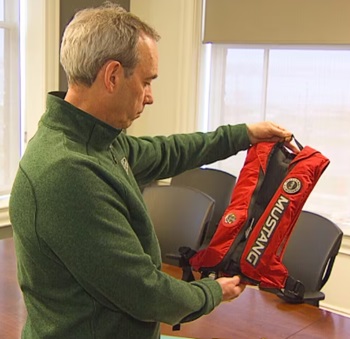 With many fishers beginning their season, occupational health and safety officials have been visiting harbours to reinforce the message around lifejackets. Regulations require their use. While some fishers might not have worn a life-jacket years ago, more people seem to be following the rules now, says Danny Miller, director of occupational health and safety with the Workers Compensation Board of P.E.I. “It’s a very positive change,” he said. “I hope fishers are doing the right thing and it’s not just because we’re watching. Hopefully they’re doing the right thing because it’s the right thing to do.” more, >>CLICK TO READ<< 06:46
With many fishers beginning their season, occupational health and safety officials have been visiting harbours to reinforce the message around lifejackets. Regulations require their use. While some fishers might not have worn a life-jacket years ago, more people seem to be following the rules now, says Danny Miller, director of occupational health and safety with the Workers Compensation Board of P.E.I. “It’s a very positive change,” he said. “I hope fishers are doing the right thing and it’s not just because we’re watching. Hopefully they’re doing the right thing because it’s the right thing to do.” more, >>CLICK TO READ<< 06:46
Useless unless worn
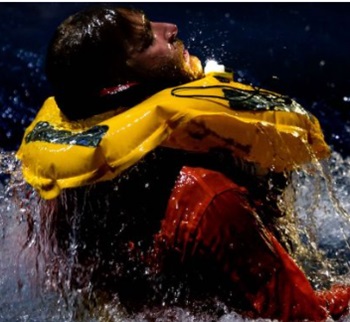 Great efforts have been made by all to produce meaningful, practical projects and help develop wearable floatation equipment in conjunction with fishermen and the manufacturers of floatation equipment, according to RNLI fishing safety manager Frankie Horne. He said that this has led to some real improvements in Personal Floatation Device (PFD) products. ‘As the saying goes, Useless Unless Worn, and it’s so true. We can talk about how things were done in the past, but as they say, the past is where things were done differently. Unfortunately, this attitude is why we keep seeing preventable fatalities in the fishing industry. In fact, some of the most vulnerable fishing activities have the worst PFD wear rate,’ he said. more, >>CLICK TO READ<< 19:01
Great efforts have been made by all to produce meaningful, practical projects and help develop wearable floatation equipment in conjunction with fishermen and the manufacturers of floatation equipment, according to RNLI fishing safety manager Frankie Horne. He said that this has led to some real improvements in Personal Floatation Device (PFD) products. ‘As the saying goes, Useless Unless Worn, and it’s so true. We can talk about how things were done in the past, but as they say, the past is where things were done differently. Unfortunately, this attitude is why we keep seeing preventable fatalities in the fishing industry. In fact, some of the most vulnerable fishing activities have the worst PFD wear rate,’ he said. more, >>CLICK TO READ<< 19:01
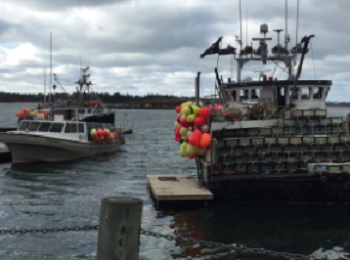
Fish Safe NS Encouraging PFD Use Ahead of Dumping Day
Executive Director Matthew Duffy says they’ve been on wharves from Tiverton, Digby County to Eastern Passage over the last few weeks. He says the biggest topic of conversation are PFD’s. “I strongly encourage everyone going out to sea this season, that they always wear one. The Department of Labour is enforcing that, it’s the law to wear a personal floatation device in Nova Scotia,” says Duffy. >click to read< 09:10
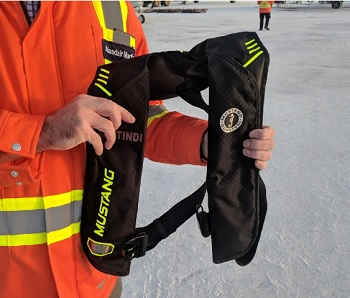
PFD’s: New Brunswick to make personal flotation devices mandatory for commercial fishing industry
The New Brunswick government has introduced legislation to make personal flotation devices or life jackets mandatory for the commercial fishing industry, answering a recommendation issued after two fishermen drowned in 2016. There is no requirement for fishers to wear life jackets, or PFDs, under current legislation, something the Transportation Safety Board of Canada said should change given the frequency of drowning in the industry. Fishing vessels are not considered workplaces under the province’s Occupational Health and Safety Act, leaving WorkSafeNB unable to enforce safety standards. >click to read< 21:43
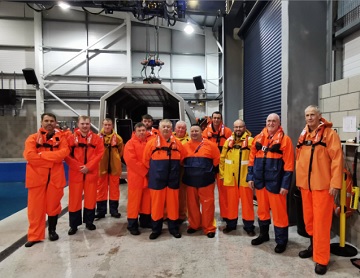
Fishermen say survival training could prove vital
Five fishermen have undertaken man overboard training to help reduce incidents at sea. The free in-water courses held in Aberdeen, demonstrate how to avoid overboard incidents, and what can be done to recover and improve the chances of survival. The environment pool training facility at energy sector training provider Survivex, which simulates some of the conditions experienced at sea, including heavy swells and rain. The session was funded by the Fishing Industry Safety Group, a partnership between the Maritime and Coastguard Agency, RNLI, fishermen’s associations from across the UK and public body Seafish. >click to read< 18:30
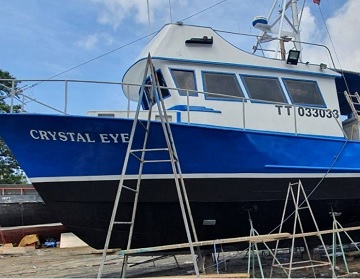
Captain: Monster waves wrecked ideal fishing trip and boat
When Captain James Kirwan, 59, and his crew set sail from Chaguaramas aboard Crystal Eye on Thursday for a week of fishing in Tobago waters, the only thing on their minds was the number of shark and tuna they intended to catch. However, just a few days into the trip, Kirwan and four fishermen had to abandon ship and jump into the Caribbean Sea on Saturday night, after huge waves crashed into the 55-foot trawler causing it to sink. “Everything was all right. The weather wasn’t bad. We already had 3,400 pounds of shark and some other big fish. I decided to let the crew pack up the gears and take a rest.” Moments later the sea turned rough,,, >click to read< 12:37

Five fishermen rescued after boat sinks: ‘God saved us from drowning’
According to reports, the 55-foot trawler with 350 hp engine, captained by James Kirwan, and owned by Christopher Ragbir, began taking in water around 7pm near the marine border with Grenada. The men on board were Kirwan, 59; Kyle Dyer, 31; Azim Baksh, 35; Keston Frederick, 36; and Jerome Nicome, 63. Before the boat submerged, distress calls were sent but the signal was too weak. Frightened and in frigid conditions, the men, wearing life jackets, jumped into the Caribbean Sea as the boat went under. The men said it was their prayers to God that delivered them from tragedy. photos, >click to read< 08:57
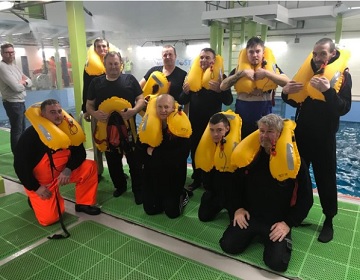
PFD’s: Fishermen get lesson in staying safe at South Shields Marine School
The maritime survival centre hosted three days of new-style instruction to emphasise to trawlermen the danger of setting sail without a life jacket. Experts highlighted how unsafe it is to set sail without wearing a life jacket. They entered the 4m-deep storm-configured pool in only their usual at-sea protective boots and waterproofs. Most of the participants lasted just under a minute before the weight of water began pulling them under, compelling them to grab life floats placed by safety lifeguards swimming close by. >click to read< 10:57

Canada: Fishing Industry’s high death rate ‘unacceptable’ and ‘preventable’
Though there is no obvious reason as to why fishing in Canada is so dangerous, or more dangerous than in other countries, there are certainly a number of factors at play. One of the reasons could simply be due to the large numbers of fish harvesters in Canada. Nova Scotia and Newfoundland have the greatest population of fish harvesters (according to 2009 numbers, Newfoundland and Labrador has around 17,000 fish harvesters and 6000 vessels, while Nova Scotia has around 13,000 fish harvesters and around 4,500 vessels). With so many people in the industry, a higher number of fatalities could be inevitable. >click to read< 10:26
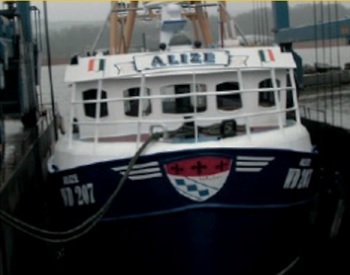
PFD Reminder for Fishing Crews Following Report on Scallop Boat Sinking Incident That Cost Two Lives
The Department of Transport has issued a new Marine Notice on the correct use of lifejackets or personal flotation devices PFD’s on fishing vessels. It follows the report earlier this month from the Maritime Casualty Investigation Board into the sinking of the FV Alize off Hook Head early last year. Two fishermen died after the F/V Alize sank while fishing for scallops out of Duncannon, Co Wexford on 4 January 2020. Joe Sinnott was recovered from the scene by the Irish Coast Guard’s Waterford-based helicopter Rescue 117 but was later pronounced dead at University Hospital Waterford. >click to read< 12:04
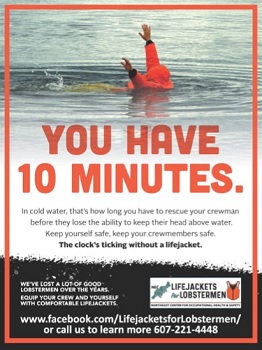
Lifejackets for Lobstermen Project works to get PFDs on every fisherman
From 2000-2016, the Centers for Disease Control charted 204 commercial fishing fatalities from falls overboard. None of the fishermen recovered were wearing a lifejacket, and 108 of the fishermen’s bodies were never found, according to a report of the Lifejacket Project, which was launched to identify solutions and increase fishermen’s interest in wearing lifejackets. In its recently published, 20-page summary report, the Northeast Center for Occupational Health and Safety in Agriculture, Forestry and Fishing chronicles stories from the Lifejackets for Lobstermen Project and provides examples of the fishing community’s interest and engagement with the project. >click to read< 05:46

Transportation Safety Board says ‘countless’ reports show fishermen need to wear PFDs, use EPIRB emergency beacons
Transportation Safety Board of Canada (TSB) investigator Chris Morrow said it has concluded many times that fishermen need to wear personal flotation devices (PFDs) and they have to have emergency beacons on board. He said the investigation into the capsizing of the Ocean Star II lobster  boat found those to be consistent issues. An emergency beacon, known as an electronic position indicating radio beacon or EPIRB, might not have helped the crew aboard the Ocean Star II, but Morrow said they were in the water a long time without PFDs.,, On May 5, 2018, > Richard Moreau and Liz O’Connell <drowned after their small crabbing boat capsized near Port Medway, N.S. >click to read< 14:40
boat found those to be consistent issues. An emergency beacon, known as an electronic position indicating radio beacon or EPIRB, might not have helped the crew aboard the Ocean Star II, but Morrow said they were in the water a long time without PFDs.,, On May 5, 2018, > Richard Moreau and Liz O’Connell <drowned after their small crabbing boat capsized near Port Medway, N.S. >click to read< 14:40
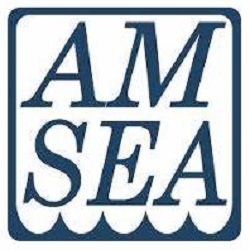
Fishing Vessel Drill Conductor Training in Mariner’s First Aid & CPR Class, June 18 – Mariner’s First Aid & CPR Class June 19 in Sitka
Instructor Jerry Dzugan, will cover cold-water survival skills; EPIRBs, signal flares, and mayday calls; man-overboard recovery; firefighting; flooding and damage control; dewatering pumps, immersion suits and PFDs, helicopter rescue, life rafts, abandon ship procedures, and emergency drills. This class is an excellent opportunity for commercial fishermen and other mariners to gain hands-on training with marine safety equipment and learn best practices for surviving emergencies at sea. The Mariner’s First Aid & CPR Class in Sitka will cover CPR & automatic external defibrillators (AED); treatment of choking; medical emergencies; trauma; environmental hazards; patient assessment; medical communications; drowning & hypothermia; and common fishing injuries. >click to read details, and information< 10:31
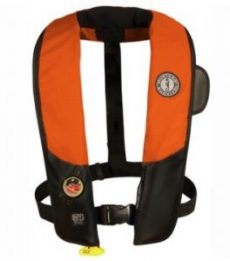
PFDs: Too few commercial fishermen wear life jackets
I recall a great quote from the late Molly Benjamin, a Cape Cod Times fishing columnist and well-known voice for the New England fishing community. In one of her articles on a marine casualty, she wrote, “the Sea is not the home element of humans; we visit at our own risk.” Not wearing a lifejacket while fishing is the equivalent of driving down the most dangerous road in Maine, at high speed, with your seatbelt in the trunk of your car. The frustrating thing is fishermen know the hazards but continue to flout the lifejacket’s indisputable life-saving value. by Capt. Brian LeFebvre, USCG >click to read< 07:22
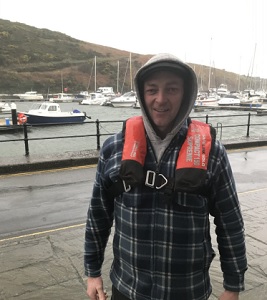
PFDs: Encourage fishermen to wear lifejackets while on deck – Safety training and equipment saved lives
The Polaris sank so rapidly that skipper Gordon Mills only had time to send out a Mayday to the coastguard before the vessel became submerged. But it was local fishing vessel, the Lynn Marie, which arrived first on scene. The skipper and a crew member from Polaris had been in the water for at least 15-20 minutes before help arrived. Skipper of the Lynn Marie feared the worst as they arrived at the scene as the Polaris had already gone below the water. He stopped his engine and heard two men in the water shouting. >click to read< 07:38
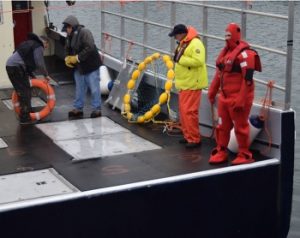
Huge emphasis placed on safety ahead of lobster season opener in southwestern N.S.
Throughout the fall, the ‘Are You Ready’ team has been busy visiting wharves throughout LFAs 33 and 34, conducting safety drills and sharing resources and knowledge to help ensure fishermen come home safely at the end of the day. “In general, especially leading up to the season fishermen already have safety on their minds,” said Matthew Duffy, safety advisor for the Fisheries Safety Association of Nova Scotia (FSANS). >click to read< 10:39
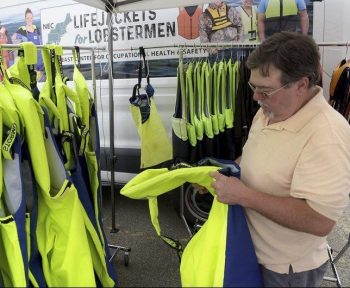
Tide turning on wearing safety gear – Campaign says lobstermen listening
On Wednesday, Carpenter stopped by the Everett R. Jodrey State Fish Pier to check out the 11 different varieties of personal flotation devices available for inspection and purchase as part of the Lifejackets for Lobstermen campaign being run by the Northeast Center for Occupational Health and Safety. The campaign, designed to convince more commercial lobstermen to wear personal flotation devices while fishing, has spent the summer in 40 lobstering communities up and down the New England coast. Photo’s, >click to read< 15:18
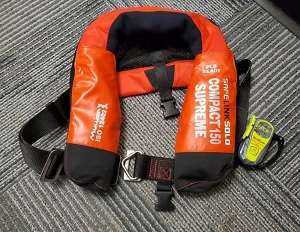
N.L. regulators watching closely as B.C. requires life jackets on fishing vessels
Fishers in British Columbia now have a clear directive when it comes to life jackets: they must be worn on decks of fishing vessels. That regulation change is getting attention in Newfoundland and Labrador.,,, The amended regulation in B.C. has safety advocates in Newfoundland and Labrador talking. >click to read< 10:37

Commercial fishing crews in B.C. now required to wear life-jackets on deck
The organization that oversees worker safety in British Columbia is taking steps to reduce risks faced by commercial fishing crews. WorkSafeBC says all crew members on the deck of a fishing vessel must now wear a life-jacket or personal flotation device. Until the amendment took effect June 3, workers on commercial fishing boats were only required to wear a life-jacket when working under conditions that involved a risk of drowning.,,, The updated regulation stems from Transportation Safety Board recommendations made after the fatal capsizing of the fishing vessel Caledonian near Tofino in September 2015. Three of the four crewmen died and the lone survivor was the only one wearing a life-jacket. >click to read<16:35

Workers Compensation Board after fishermen to wear PFDs
Starting Monday, the Workers Compensation Board of P.E.I. will be heading to wharves across the Island to ensure fishermen are wearing personal flotation devices. The visits are part of an education and compliance initiative the WCB started last year. “The fishing industry is a dangerous industry,” said Danny Miller, director of occupational health and safety. “We’ve been focusing on the education, and the recent fatalities on P.E.I. have further reminded us that there’s more work to do.” Four people died in commercial fishing accidents last year in P.E.I. waters. >click to read<10:51

Alan Holman – Make PFDs mandatory on fishing boats
It has been noted in past columns in this space that fishing is the most dangerous occupation in Canada. On a per capita basis more people die in the fishing industry than any other, including construction, mining and policing. But, is enough being done. All other Island industries operate under stringent health and safety regulations; the fishery, not so much. Not all, but most Island fishing boats are too small, or they don’t go far enough from shore, to fall under the federal department of transport regulations concerning safety measures requiring the crew to wear life-jackets. And, most Island fishermen think that’s alright. They don’t want any more regulations. This lack of regulation would be fine, if Island fishermen were taking measures to prevent the kind of accident that happened recently off Naufrage when 22-year-old Jordan Hicken fell overboard, unnoticed, as the boat headed out to sea. >click to read<14:29
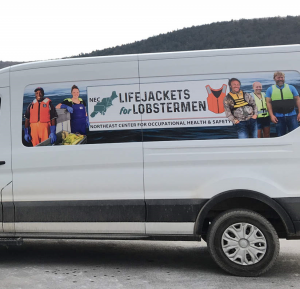
Lifejackets for Lobstermen van to visit Midcoast
A group seeking to promote the use of life jackets among lobstermen will visit several Knox County fishing towns during the weeks of May 6 and May 13. Researchers at the Northeast Center for Occupational Health and Safety: Agriculture, Forestry and Fishing have been working with lobstermen in Maine and Massachusetts over the past few years to understand why life jacket use has been relatively uncommon among fishermen in this fishery sector. One result has been the “Lifejackets for Lobstermen” campaign. The vans will make local stops at the following places. All stops will begin at 10 a.m. May 8, Olsen’s Wharf, Pleasant Point Gut, Cushing, 10 a.m. May 9, Simmons Wharf, Friendship, May 10 and May 13, Tenants Harbor Co-op, Port Clyde May 14, Atwood Lobster, Spruce Head May 15, Public landing next to Ship to Shore Lobster, Owls Head May 16, Rockland Fish Pier, >click to read<11:44
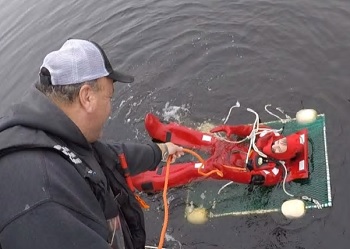
Fishermen train for a rescue in an industry full of danger
The thick red neoprene of my survival suit pressed my nose flat against my face, as I flopped into the makeshift rescue rig. A winch above strained to pull me from the dark water. The rope snapped. I plunged back down, spat out salty water and bobbed to the surface. “And that’s why we do the drills,” said Matthew Duffy, a safety advisor with the Fisheries Safety Association of Nova Scotia. Duffy stood on the boat above me in Port Mouton, N.S., next to a sheepish captain who later vowed to buy a new rope. On an adjacent wharf, dozens of fishermen watched our mock rescue. >click to read<12:41
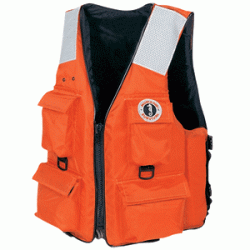
Falling overboard is the second biggest killer of U.S. fishermen, second only to vessel sinkings.
From 2000 through 2016, 204 fishermen died after falling overboard. Nearly 60 percent were not witnessed and nearly 90 percent were never found. In every case, not one fisherman was wearing a life jacket. “I think there is a social stigma against it. It doesn’t look cool, it’s a sort of macho thing. I also think there is a lack of awareness of the fact that there are really comfortable, wearable PFDs.” Jerry Dzugan is director of the Alaska Marine Safety Education Association. >audio report, click to read<16:32
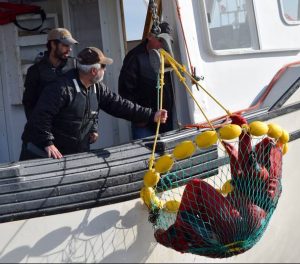
Southwestern NS fishermen asked ‘Are you ready?’ as focus is put on safety heading into season
The Fisheries Safety Association of Nova Scotia and the Nova Scotia Fisheries Sector Council have been busy in the weeks leading up to the opening of the lobster fishery delivering man overboard drills, safety equipment demonstrations and safety messages at wharfs throughout southwestern Nova Scotia as part of their ‘Are You Ready?’ program. “Attendance at these drills has been fantastic, even in smaller ports for 10 or less vessels we are still seeing all captains and crews show up,” said Matthew Duffy, safety advisor for the Fisheries Safety Association of Nova Scotia. >click to read<10:53
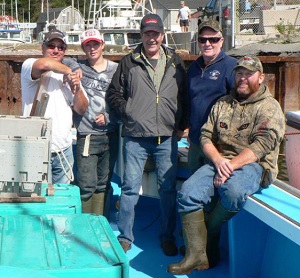
Devestation – Seven drownings among Nova Scotia fishermen highlight importance of PFDs
Allan Anderson never thought his close friend, “a stellar tuna fisherman” of four decades, would be the latest drowning victim. The Aulds Cove lifelong fisherman learned of the tragic news on Saturday not long after Stevie MacInnis died while tuna fishing off the coast of Port Hood. The father of three was the seventh Nova Scotia fisherman to drown on the job this year. The 68-year-old Arisaig resident was widely regarded as a selfless community man. It’s unclear whether he was wearing a personal flotation device (PFD).,, But Anderson also admits that he and MacInnis also represent an older generation of fishermen reluctant to wear PFDs themselves. >click to read<12:18
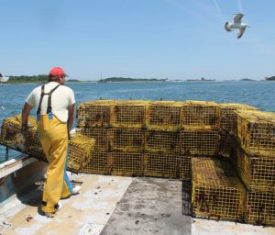
Researchers Try To Build A Better Life Jacket To Keep Lobstermen Alive
Early on a July morning, Massachusetts lobsterman Steve Holler and his sternman Frank Lenardis haul lobster traps out of Boston Harbor over the edge of Holler’s boat, the November Gale, and dump the catch into a holding tray. “It’s a dance between me and him,” Holler says. “Him getting that done, me getting this done, because with his strength, his weight, he’ll knock me right on my rear end. He’s done it a few times.” This particular morning in July, everything goes smoothly. But Holler remembers one day in February when a routine haul went very wrong,,, >click to read<16:13

More fishermen on P.E.I. plan to wear personal flotation devices
Some Prince Edward Island fishermen say after the tragic deaths of Glen DesRoches and Moe Getson, they plan to start wearing life vests on board their boats. Earl Gavin said he plans to wear a personal flotation device when he goes out on the water. “It’d be no harm to have life jackets on,” Gavin said. “I don’t now wear one aboard the boat. But we should.” The Workers Compensation Board of P.E.I. said it’s been getting more calls from fishermen wondering where to buy the right life vest and how to encourage others to wear them. >click to read<21:58
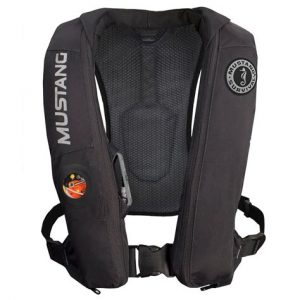
PFD’s – A case for life jackets for all: By Roger R. Locandro
Andre Penton of Fogo Island died June 27 this year in a boating accident on a pond not far from his home in Joe Batt’s Arm. The Fogo Island community mourns his death, with condolences to his wife Rita, his three sons and their families. Although his death was not directly due to drowning, it brought back my own memories of dangers on the water.,, People drown. Don’t take any chances on or around the water. I took chances and almost paid for it with my life. Some years ago, I was commercial seining for salmon in the Gulf of Alaska, out of Cordova. >click to read<22:49






